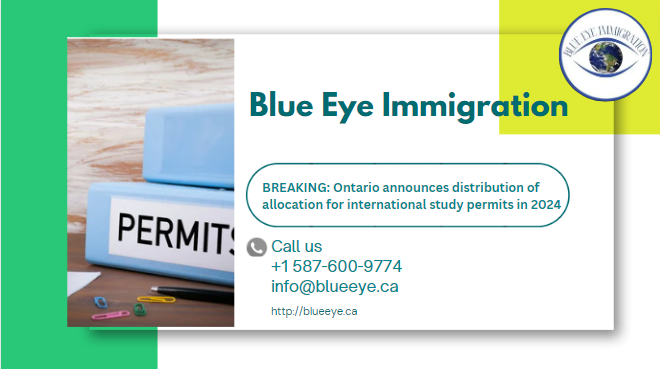The majority of foreign study permits—96%—will be awarded to Ontario’s public universities and colleges, with the remaining permits going to “language schools, private universities and other institutions” around the province.
The Ontario government said this afternoon in a news release that postsecondary education programs at public universities will be given priority when it comes to the allocation of study permits. This is done to “help prepare graduates for in-demand jobs that support Ontario’s labour market needs.”
Note: Due to this allotment, applications for study permits from overseas students will not be accepted for career colleges. Most career colleges are private establishments.
The announcement made today states that the province of Ontario has decided to prioritize programs in a number of “high-demand areas” when allocating study permits to foreign students. These categories include:
- Skilled trades
- Health human resources
- Science, Technology, Engineering and Mathematics
- Hospitality
- Childcare
Enrollment in French will be given priority, according to Ontario, which also stated that “employers compete for workers with French-language skills.”
The news release from today included the following information regarding Ontario’s 2024 study permit distribution:
“The ratio of international permits cannot exceed 55% (exclusive of high-demand areas) of the institution’s 2023 first-year domestic enrolment.” Additionally, the number of study permits allotted to a single school cannot surpass the number of permits it awarded in 2023.
With the exception of Algoma University in Sault Ste. Marie, which will witness a decrease in admissions compared to previous year, all public universities in Ontario “will keep applications at the 2023 level.”
Also, “applications at the 2023 level” will continue to be accepted at 11 of Ontario’s 24 public colleges. Conestoga College in particular and colleges “with public-private college partnerships” will experience the biggest drops in the number of applications.
For what reason is Ontario assigning its licenses for study abroad?
The declaration made today is in reaction to a decision made earlier this year by Immigration, Refugees and Citizenship Canada (IRCC) to cap the quantity of study permits granted to foreign students* in Canada in 2024 and 2025.
* The majority of the focus of this IRCC metric is on international undergraduate students. International students enrolled in primary and secondary education, as well as those seeking master’s and doctoral degrees, are specifically excluded from the IRCC cap.
What is the difference in Ontario’s allotment from other provinces?
Compared to some other provinces, Ontario has a significantly greater bias in favour of public universities when allocating study permit quotas. As an illustration, British Columbia, which has the second-highest number of Designated Learning Institutions (DLIs) behind Ontario, distributed its allotment almost equally between public (53%) and private (47%) post-secondary institutions. According to the Ministry of Post-Secondary Education and Future Skills in British Columbia, 83,000 applications for undergraduate study permits will be granted to the province in 2024.
The overall number of research permit applications that Ontario has received from the federal government this year has not yet been disclosed. According to IRCC guidelines, the province is expected to have the highest quota of study permits of any Canadian province or territory, taking into account the size of its population.
How to Obtain an Ontario Provincial Attestation Letter (PAL)
Although the province is anticipated to make the announcement in the next few days, Ontario has not yet officially announced the launch of its PAL issuance system. The federal government gave all provinces and territories until March 31st to establish a procedure for providing PALs to foreign students.
Currently, the province government of Ontario advises foreign students who wish to study there to get in touch with their preferred school directly to find out more information on obtaining the necessary paperwork. International students will not need to apply for PALs directly, according to the Ontario College Application process (OCAS), which is the centralized application process for colleges in Ontario. Instead, the student’s selected DLI will submit an application to the Ontario Ministry of Colleges and Universities on their behalf. A copy of the letter from their DLI will be sent to overseas students after their application has been approved and the PAL is prepared.



